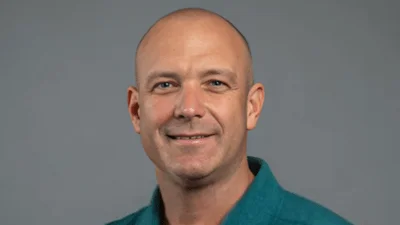Aramark Services Inc. issued the following announcement on April 28
The coronavirus (COVID-19) outbreak has turned our personal and professional worlds upside down. With so many client locations—office buildings, schools, universities, stadiums, and more—impacted by the virus and stay-at-home orders, we needed to radically shift the way we do business.
Through it all, we’ve remained dedicated to serving consumers, protecting our employees, honoring our partnerships, and strengthening the communities where we live and work.
What does all this look like during a global pandemic? Here are some of the ways we’ve shaped our response to the crisis.
Hospitals Must Stay Clean
Keeping a medical facility clean is a challenge under any circumstances. It is even more challenging during a pandemic.
Our facilities management and environmental services teams are hard at work deep-cleaning rooms, beds, and equipment with greater frequency – all while wearing additional protective gear. We’ve also deployed special teams to clean rooms with ultraviolet light when coronavirus patients are discharged.
“Right now, it’s the reinforcement of high-touch surfaces—door handles, knobs, light switches, things that sometimes get overlooked,” says Juan DeJesus, district manager for Philadelphia’s Main Line Health System. “We increased frequency levels from maybe doing them once a shift, to doing them multiple times a shift, especially our lobbies and waiting areas.”
Healthcare Workers Need Our Help
If we can agree on one thing, it’s that healthcare professionals are the heroes of this crisis. We were proud to partner with the Debra and Leon Black Family, the Mayor’s Fund to Advance New York City, Robin Hood, and the American Red Cross to launch NYC Healthcare Heroes in support of more than 100,000 New York City healthcare workers at the country’s epicenter.
This philanthropic program will provide up to 500,000 packages of shelf-stable food, household cleaning and personal care products, as well as over-the-counter medicine, to staff to staff at hospitals across the five boroughs. We’re also donating our expertise and the labor to procure, assemble, and distribute these caregiver packages.
We teamed up with the Debra and Leon Black Family, the NYC Mayor’s Fund, Robin Hood and the American Red Cross to be a part of the NYC Healthcare Heroes initiative. Together, we’ve delivered thousands of bags of shelf-stable food and other products to NYC-area healthcare professionals.
Likewise, the last thing healthcare professionals should have to worry about at the end of a long, grueling shift is running to the grocery store. That’s why we adapted our c-store model as pop-up grocery stores at over 60 hospital locations nationwide. These mini markets sell hard-to-find essentials such as milk, bread, eggs, canned goods, frozen meals, and single rolls of toilet paper—saving employees from that extra stop before heading home to their own families.
"Many healthcare employees are working around the clock amid the COVID-19 pandemic with limited time to go shopping after work. We saw a need and wanted to help. We are always looking at ways to serve our customers, now more than ever.”
- Ezequiel Gonzalez, Director of Food and Nutrition Service, Baylor Scott & White Hillcrest Medical Center
K-12 Students Still Rely On Daily Meals
For the millions of students who receive free or reduced-price meals from their school system, school closures can mean facing food insecurity. What’s more, hard times may put even more parents in the position of not being able to provide adequate food for their children.
Once again, our K-12 teams answered the call—and by the end of April, they had produced an astounding 20 million meals nationwide. They’re not just preparing breakfasts and lunches (adjusting menus as needed for maximum portability), but delivering them to students in need. For example, Pekin (IL) Public Schools District 108 recently quadrupled the number of locations where families could pick up meals, in partnership with our team and a local bus company.
Since schools have closed, we have distributed 20 million meals to students across the nation.
The picture is similar for Chicago Public schools, the third-largest district in the country. They have closed indefinitely while simultaneously embarking on one of the nation’s most ambitious free meal programs. We pledged to provide grab-and-go meals to any family in the area, so far serving 7.1 million meals across 270 city locations.
These efforts extend to communities like Trenton, NJ; Lubbock, TX; and Toledo, OH (where school buses delivered meals to students’ homes with a side of homework packets). Across the board, we’re taking utmost care to guard against virus exposure, so the free meals are both healthy and safe.
Supporting Small Businesses and Local Farms
The closure of restaurants, cafes, and other eateries has had a ripple effect throughout the food supply chain. The pain is felt acutely among farmers and other small suppliers, who have seen a large portion of their market disappear almost overnight.
We are able to help bridge this gap by making some shifts throughout our supply chain. Where we can, we’re drawing upon our network of 6,000 small and diverse suppliers to service our client partners who are still operating during the pandemic.
In Kentucky, brand-new solutions have emerged to keep farmers afloat during these unprecedented times. With University of Kentucky students now off-campus (and restaurants unable to fill the void), what would happen to the locally farmed food once destined for the dining halls?
The answer is a new program that distributes their produce, meat, and other products directly to consumers, developed in partnership with Creation Gardens, one of our suppliers. Lexington residents can place orders online with Creation Gardens—itself a woman-owned business—and pick them up Thursdays at one of two locations. Consumers enjoy the fresh, sustainable goods (and the chance to step up their cooking game at home), while the farmers yield another income source to help them ride out the public health emergency.
Producing Essential PPE
Our crisis response extends beyond food-related needs. We recently announced that our uniform production sites in Mexico have been converted to manufacture personal protective equipment (PPE). In just one week, these facilities went from producing lab coats, work shirts, pants, and coveralls, to making respirator and medical masks, scrubs, and isolation gowns.
Once fully operational, we expect to produce millions of PPE items for the heroes working in hospitals and other critical roles across the United States—and we’ve already started delivering them to clients.
Our uniform facilities have shifted gears to produce PPE, helping overcome shortages of critical masks, scrubs, and gowns.
Rising to the Occasion
Delivering meals, uniforms, and facility services while meeting a world-class standard of hygiene and safety is indeed essential work during the COVID-19 pandemic. We’ll keep pivoting and developing solutions to meet the needs of our families, employees, clients, and partners nationwide—so we can get through this crisis safely, together.
Original source can be found here.
Source: Aramark Services Inc.







 Alerts Sign-up
Alerts Sign-up